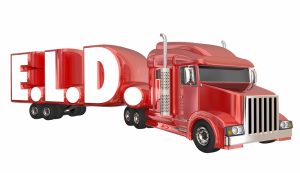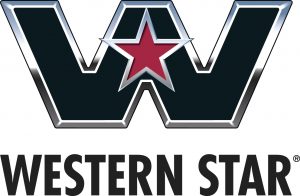Running a trucking business has never been a cheap feat, and in today’s economic environment of increasing fuel prices, insurance premiums, and increased needs for regulatory compliance, keeping your costs to a minimum is more critical than ever. No matter if you’re a new carrier with a single carrier truck or managing a small fleet, cutting down on operational costs and improving efficiency can make all the difference in your profits and losses. Learning strategies to decrease trucking costs and adopting them along every step of the way is now your key to your operation’s success.
Here are 10 strategies with proven success rates to reduce trucking costs. Our tips are backed by industry insights and supported by DOT Operating Authority’s expert services.
1. Optimize Your Planned Routes to Decrease Fuel and Time Loss
One of the greatest expenses in trucking is fuel costs. Inefficient route planning leads to extra fuel usage, longer trip times, and more wear on your equipment. Using advanced GPS tracking and routing software allows dispatchers and truckers to avoid traffic-prone routes, toll-heavy highways, and unnecessary detours along the road.
Integrating route planning with tracking traffic in real time and weather updates makes sure your trucks are always taking the most efficient, fastest, and most cost-effective paths.
2. Make Preventive Maintenance Your Top Priority
Skipping out on routine maintenance checks in order to decrease trucking costs is only beneficial in the short run. Less routine maintenance often leads to costly breakdowns and downtime as time goes on. Preventive maintenance includes regular inspections of brakes, tires, engine fluids, and electrical systems. These checks are crucial in decreasing the risk of unexpected failures, especially when you’re en-route, and extend the life of your trucks.
Establish a schedule for each truck’s maintenance and stick by it. At the end of the day, downtime is much more expensive than the necessary routine care for your trucks!
3. Decrease Trucking Costs Through Fuel Efficiency and Smart Driving Habits
Training your truck drivers to adopt fuel-saving habits can greatly decrease your operation’s fuel consumption by up to 20%! Encourage cost-effective behaviors such as:
- Driving at a consistent speed
- Avoiding too much idling
- Using cruise control while on the highway
- Using proper shifting methods
Additionally, investing in add-ons such as trailer skirts, gap reducers, or low rolling resistance tires can further help you stay cost-efficient and decrease trucking costs.
4. Make Use of Fleet Management Tech
Using telematic systems can offer your option the benefit of receiving real-time updates on vehicle performance and driver behavior. With this technology, fleet operators can monitor:
- Fuel usage
- Harsh brakes or sped up driving
- Idle times
- Trucker location in real time
This important information can help you manage truckers, avoid unsafe driving, and make decisions that are backed by accurate data to decrease any additional trucking costs.
5. Decrease the Rates of Driver Turnovers and Improve Retention
Replacing drivers is expensive and can place one of the heaviest burdens on operations looking to decrease trucking costs. From recruiting and onboarding to training drivers with different skill sets, turnover costs can reach thousands per driver. Keeping qualified drivers not only decreases trucking costs but also improves the safety and efficiency of your truckers.
Strategies for retaining drivers include offering competitive pay, easily navigable routes, benefits, bonuses, and a positive work environment. Investing in your current, skilled drivers reduces losses in the long-term!
6. Avoid Heavy Fines to Decrease Trucking Costs Through Compliance
Not complying with Federal Motor Carrier Safety Administration (FMCSA) regulations can result in costly fines or even suspension of authority. Some of the most common violations include missing filings, outdated registrations, or safety audit failures.
DOT Operating Authority can help you manage your:
- MC and DOT number filings
- Biennial updates
- UCR registration
- IFTA reports
- BOC-3 filings
Let us handle the hassle of paperwork so you can stay on top of keeping your trucking operation up and running without the risk of costly penalties!
7. Keep an Eye Out for Commercial Truck Insurance
While commercial truck insurance is a legal requirement in running a trucking operation, costs can vary greatly depending on the insurance provider, policy, and safety record. When you get a price quote from a potential provider, don’t just go ahead with that first option! Instead, request price quotes from different providers and plan to work with brokers who specialize in commercial trucking and transportation.
8. Avoid Trips With Empty Carriers
Making trips with empty carriers can greatly decrease profits. When drivers are on the road, every mile should be earning revenue. Use load boards, freight matching platforms, and partner with experienced brokers to secure backhauls.
In the case of smaller carriers, consider combining smaller loads to make each trip more profitable.
9. Automate Office Tasks To Decrease Trucking Costs
Managing paperwork and keeping outdated mannual processes slow down your business and increase labor costs. Look into automating office tasks like:
- IFTA fuel tax filings
- Invoice processing
- Compliance tracking
Switching from manual administrative tasks to automated processes can save hours of admin work per week. We at DOT Operating Authority offer automated solutions to help cut down your back-office hassle and eliminate human error.
10. Understand if Leasing or Buying a Truck is Better for your Business
- Lower upfront costs
- Seamless upgrades
- Deals with maintenance included
- Tax benefits
Run a full analysis of your business’s costs, which includes mileage, maintenance projections, and financing terms. This will help you see whether leasing or buying your trucks is the right way to go!
Decrease Trucking Costs Today
Achieving operational success isn’t just about the quantity of your hauls, it’s about the quality of your operation. Cutting down on fuel waste, preventing the need for repairs, improving FMCSA compliance, and automating administrative tasks can impact the way your business operates and secures your bottom line. Having a strategy in place doesn’t just boil down to cutting corners, it’s about leading a more resilient, efficient, and profitable operation.
When it comes to decreasing risks and staying FMCSA compliant, DOT Operating Authority is your partner to rely on. With over 20 years of experience in helping trucking companies nationwide, we’ll help you stay efficient, avoid heavy fines, and keep your business rolling forward!
Contact us today at DOT Operating Authority for a free consultation.




